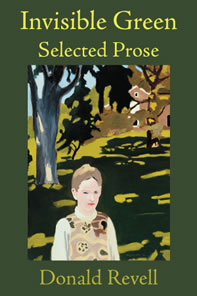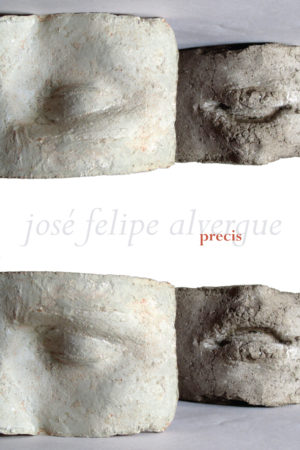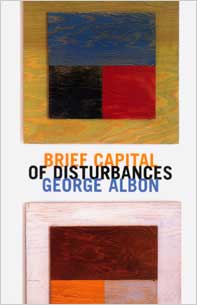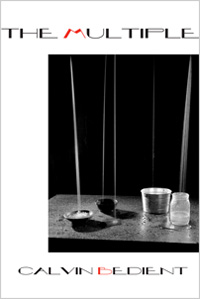Description
Invisible Green: Selected Prose begins with the series of nine essays published in American Poetry Review, essays which enact intimate and yet capacious converse with, and among, an array of writers. Quoted works become provocations for this poet’s examination of language and humanness, an examination that disrupts our more comfortable notions while extending insights as to the nature and necessity of poetry. The elegant immediacy of Revell’s prose belies the complex virtuosity he demonstrates in his manipulation of the essay’s formal constraints as he incorporates the works of writers with whom we may well be familiar, but whose texts will become newly illuminated by the exchange. Besides this series, the collection includes eight more essays-their subjects range from lively considerations of the writings of Henry Thoreau, Pierre Reverdy, Ronald Johnson, John Ashbery and others, to more personal essays in which Revell examines the interrelationships between language and life, memory and culture, and how these impact upon the writing and reception of poetry. Donald Revell tells us “Poetry, the soul of poems, does not reside or rest in them. It goes. We follow.” Revell’s language-by turns lyrically meditative, demandingly direct, defiantly iconoclastic-draws his reader into a dynamic exchange about what it means to be a reader and writer in today’s world.
About the Author
Reviews
Excerpt
Donald Revell is Professor of English & Director of Creative Writing programs at UNLV. Thief of Strings is his tenth poetry collection, published by Alice James. Donald Revell’s previous translations include The Illumninations by Arthur Rimbaud, and A Season in Hell by Arthur Rimbaud, both of which were published by Omnidawn. A Season in Hell won the PSA translation award. His books of essays include Invisible Green: Selected Prose, published by Omnidawn. He serves as poetry editor of Colorado Review. Revell lives in the desert south of Las Vegas with his wife, poet Claudia Keelan, and their children Benjamin Brecht and Lucie Ming.
If this review already appears to be a cento drawn from a single source, it is because Revell himself has constructed that cento, a magnificent collage in which poet speaks to poet, vision looks upon vision, sound resonates against sound. Half the book is Invisible Green, a set of nine brief essays originally published as a column in American Poetry Review. The other half consists of an assortment of readings and homages. Revell’s style is swift, concise, and, like Thoreau’s, determinedly aphoristic. Half a page of one-liners from Invisible Green would provide enough material for a semester’s worth of discussion in any poetry class. And yet the whole is of a piece, a remarkably consistent ars poetica, a gospel intended to renew our faith in poetry and remind us of why we read and write poems.
Norman Finkelstein, Chicago Review, Spring 2006
Defying the formulaic and generic at every turn, Revell’s essays resist placement in a contemporary school… Patiently considered, Revell’s work regards the spirit, satisfying some hunger we did not know we had.
Lynnell Edwards, Rain Taxi, Spring 2006
The larger part of the prose book is a series of nine essays originally published in American Poetry Review quite recently: this is the lighter (later) Revell speaking. He gives answers to the ‘what is poetry’ question that extend his ‘one form of attention’ answer with extensive references to favoured poets in his quest for the soul of poetry. (The phrase ‘invisible green’ is Thoreau’s: ‘I wonder if my own soul is not a bright invisible green. I would fain lay my eye side by side with its – and learn of it.’ Here is a poet prepared to say that poetry is a delight: ‘Poetry, the soul of poems, does not reside or rest in them. It goes. We follow. We read to go where poetry has gone and to preserve the possibility of a delightful contract.’
Jane Routh, Stride Magazine, United Kingdom
I
Writing continues reading, returning action to the labors and delights of the day. (Returned to eternity, writing is prophecy, but to paraphrase Eckhart, I will not speak of that for now.) To see poems as the culmination of reading or of any process is to turn them against themselves, to make obstacles out of energies, shadows from daylight. Poems do not conduct their sunshine life among the Shades. The aesthete begrudges Orpheus his Eurydice. Yeats knew. The aesthete takes a mess of shadows for his meat.
was therein;
And he spread it before me; and it was written within and without: and there was written therein lamentations, and mourning, and woe.
Moreover he said unto me, Son of Man, eat that thou findest; eat this roll, and go speak unto the house of Israel .
So I opened my mouth, and he caused me to eat that roll.
(Ezekiel 2:9-10 and 3:1-2)
And I went unto the angel and said unto him, Give me the little book. And he said unto me,
Take it and eat it up; and it shall make thy belly bitter, but shall be in thy mouth sweet as honey.
And I took the little book out of the angel’s hand, and ate it up.
(Revelation 10:9-10)
Poetry is the fate of reading, a phase of transformation. Ezekiel eats what God has written, incorporates the sacred as himself, and speaks out. The Muse is fuel. The man’s book, the Book of Ezekiel, is a fire. St. John of the Revelation offers no scholium excepting a brief savor of bitter and of sweet. He builds instead, in the sequence poems know, a conflagration. Arts of obstruction esteem perceptions as products to be shaped, to be explained, to be shown off somehow, anyhow, as finally finished. Poetry is never finished. It continues and is consumed by what continues still. Perceptive reading never rests, and restlessness compels the further poem. Among the very oldest sanctities are the human rites of compulsion. (When Charles Olson wrote “I compel Gloucester,” he was, in oh so many beautiful ways, honoring origins.) Poets compel their reading to come alive: conjury, not canon; act, not re-enactment. This has, in all ages, embarrassed the Formalist.
…man gets in advance of the gods he has made, and is ashamed of the rites he once performed with complete confidence in their rightness. Then he tries by a cheat to reconcile his new view and his old custom. Religion, which once inspired the best in him, lags behind, expressing the worst.
(Jane Ellen Harrison, Prolegomena to the Study of Greek Religion, 6-7 and 72)
Poor Plutarch was anxious about influences. Could the gorgeous formularies of ritual (could the ode? the sonnet? the elegy?) have begun as shouts into a snake’s hole? If so, then aren’t they somehow shouting still? To poets, this is the Delight of Influence: Whitman’s yawp, Joyce’s shout in the street, and Ginsberg’s howl. Rites continue. A poem doesn’t lag behind its gods. No, not if they’re alive it doesn’t.
(Thomas Traherne, Centuries of Meditations: The Second Century, 48)
The satisfactions of poetry arise from conduct, not from production. So even the most practical problems are potentially ethical ones, and there is no leisure for theory except in an unimaginable afterwards. No one hopes to outlive his gods, and no poet, I trust, aspires to survive the art of poetry. We go ensemble all the way in a moving space shared with the god, the poem, the beloved. This is what Maurice Blanchot describes as an “Orphic space.”
(Maurice Blanchot, The Space of Literature, 172-173)
Think of “after the poem” as a consequence of reading, a further poem made necessary and delightful “because of it,” alive by means which mean to continue and never to return Eurydice to the hateful Shades. The Shades are real all right, but nothing to do with poetry. (Even in Elysium, Aeneas discovered a “wild longing for the light of earth.”) The dead bury the dead. Theory propounds an aftertime which love – for holy writ, for the holy imperative of writing the poem now and now and now – dispassionately ignores in the proper conduct of its passion. What Blanchot means by “Orpheus’ gaze” I propose as reading and as the loveliest consequence thereof: poetry.
(Blanchot 176)
I see a poem in its comely measures moving. Joining it, I begin myself to move, changing (disrupting, if you will) reading to writing. But reading continues, changes with me. With Orpheus, Eurydice builds a better fire than Hell. Consequences become origins so. Emerson knew, writing in “The American Scholar” that “We hear, that we may speak. The Arabian proverb says, ‘A fig tree, looking on a fig tree, becometh fruitful.'” (Emerson 89). Real perception never rests.
The restless changes of reading to writing transpire in unstable equilibrium, just like stars, and like stars, they are innumerable at any moment. But numberlessness remains real. As I make a poem, my reading continues everywhere in my words and in the verbal imaginations they constellate among themselves and me. I am too busy and I am not scholar enough to count them. It’s all right. Whitman knew and told me never to mind.
But I shall be good health to you nevertheless,
And filter and fibre your blood.
(“Song of Myself” 52)
But sometimes, energies of exchange sparkle on the uppermost surface of a page. They instruct exactly as they sound, and the lesson is always: Act. In his first book, A Week on the Concord and Merrimack Rivers (in the “Wednesday” chapter devoted to principles and duties of friendship), Thoreau introduces a passage from the Confucian philosopher Mencius, in direct quotation.
(Thoreau 215)
The insistence is practical; the purpose is heartfelt. Thought, mindful of its duty, recovers our humanity. “That is all.” Wit, inventiveness, and decorum, these go unremarked, maybe even unrewarded. And when he comes to write his masterpiece Walden, (the first and as yet unsurpassed handbook of American poetry), Thoreau has taken Mencius at his word and taken his imperative forward into the sunlight of a next new world and day.
(Thoreau 336)
Scholars have often argued the symbolic meaning of Thoreau’s lost animals. The meaning is his message: Find them! Follow them, out of the book, into our own day.
A like imperative and sparkling begins The Cantos of Ezra Pound. “Canto I” does indeed open in medias res, but the res is not Ezra’s but Homer’s, and Pound does nothing to hide it. The writing of The Cantos starts from reading, and very early.
Set keel to breakers, forth on the godly sea, and
We set up mast and sail on that swart ship,
Bore sheep aboard her, and our bodies also
Heavy with weeping, so winds from sternward
Bore us on outward with bellying canvas,
Circe’s this craft, the trim-coifed goddess.
Then sat we amidships, wind jamming the tiller,
Thus with stretched sail, we went over sea till day’s end.
Sun to his slumber, shadows o’er all the ocean,
Came we then to the bounds of deepest water,
To the Kimmerian lands, and peopled cities
Covered with close-webbed mist, unpierced ever
With glitter of sun-rays
Nor with stars stretched, nor looking back from heaven
Swartest night stretched over wretched men there.
The ocean flowing backward, came we then to the place
Aforesaid by Circe.
(Ezra Pound, Selected Cantos, 3)
Pound’s Englishing of passages from The Odyssey (Book XI) is neither overture nor tour de force. It is practical and it is dutiful. Like Odysseus, even as Odysseus (the “I” of “Canto I” is Pound and the wandering king of Ithaka all at once), he makes pious consultation with the spirits of words prior to his own. Needing to go forward, Odysseus went down among the dead to find his way. It was a matter of survival and then of sunlight. Meaning to begin, Ezra Pound avows the fact and even the literal facticity of what he himself has dearly read.
In officina Wecheli, 1538, out of Homer.
And he sailed, by Sirens and thence outward and away
And unto Circe.
Venerandam,
In the Cretan’s phrase, with the golden crown, Aphrodite,
Cypri munimenta sortita est, mirthful, orichalchi, with golden
Girdles and breast bands, thou with dark eyelids
Bearing the golden bough of Argicida. So that:
(Pound 5)
Homer, and a translation of Homer into Latin circa 1538, and then a welter of Latin, Greek, and Englishes old and modern: why? “So that:” As with Thoreau’s animals, the message comes straightforwardly from turbulent symbols: Go on. It is a matter of survival, of piety indistinguishable from the good employment of energy, from sunlight.
As reading continues in all writing, real attention, the best purpose of poetry, means active mindful moving on. We labor in good company: Orpheus, a fig tree, a turtle dove. A mind for the work makes all the difference. I remember a terrible distinction between the heroes Hektor and Aeneas. As each confronted the hour of his greatest trial, each paused a moment to kiss his son. Little Astyanax screamed at the sight of his helmeted father, and so Hektor
and laid it in all its shining upon the ground. Then taking
up his dear son he tossed him about in his arms, and kissed him.
(Homer’s Iliad, VI, 472-474)
The later epic offers a less refractory but equally tender moment. Of pious Aeneas, Virgil writes
and through his helmet gently kisses him:
“From me, my son, learn valor and true labor;
from others learn of fortune.”
(Virgil’s Aeneid, XII, 584-587)
Hektor, if only briefly, removed his helmet. Later he was killed, bequeathing his son a ruined city and an early death. Aeneas, more mindful of his purpose and so, I believe, more loving, kept his helmet on. He triumphed that same day, and he bequeathed Ascanius life and a continuing city. Hektor kisses in the past tense, Aeneas in the present. The poetry is the difference. In his poem “Heroes,” Robert Creeley lifts the Virgilian imperative into our time.
is beyond himself into the next
thing, be it those labors
of Hercules, or Aeneas going into death.
I thought the instant of the one humanness
in Virgil’s plan of it
was that it was of course human enough to die,
yet to come back, as he said, hoc opus, hic labor est.
That was the Cumaean Sibyl speaking.
This is Robert Creeley, and Virgil
is dead now two thousand years, yet Hercules
and the Aeneid , yet all that industrious wis-
dom lives in the way the mountains
and the desert are waiting
for the heroes, and death also
can still propose the old labors.
(Robert Creeley, The Collected Poems, 192)
The proposal is splendid restlessness, an urge for the further poem, “the next / thing.” “That was the Cumaean Sibyl.” “This is Robert Creeley.” Exactly pious, but never overshadowed, Creeley sees actual mountains really waiting. Work is there.
Works Cited
Maurice Blanchot. The Space of Literature, trans. Ann Smock, University of Nebraska Press 1982.
Robert Creeley. The Collected Poems. University of California Press 1982.
Ralph Waldo Emerson. Selected Essays, ed. Larzer Ziff. Penguin 1982.
Jane Ellen Harrison. Prolegomena to the Study of Greek Religion. Princeton University Press 1991.
Homer. The Iliad, trans. Richmond Lattimore. University of Chicago Press 1951.
Ezra Pound. Selected Cantos. New Directions 1970.
Henry David Thoreau. Henry David Thoreau, ed. Robert F. Sayre. Literary Classics of the United States 1985.
Thomas Traherne. Selected Poems and Prose, ed. Alan Bradford. Penguin 1991.
Virgil. The Aeneid, trans. Allen Mandelbaum. Bantam 1972.





